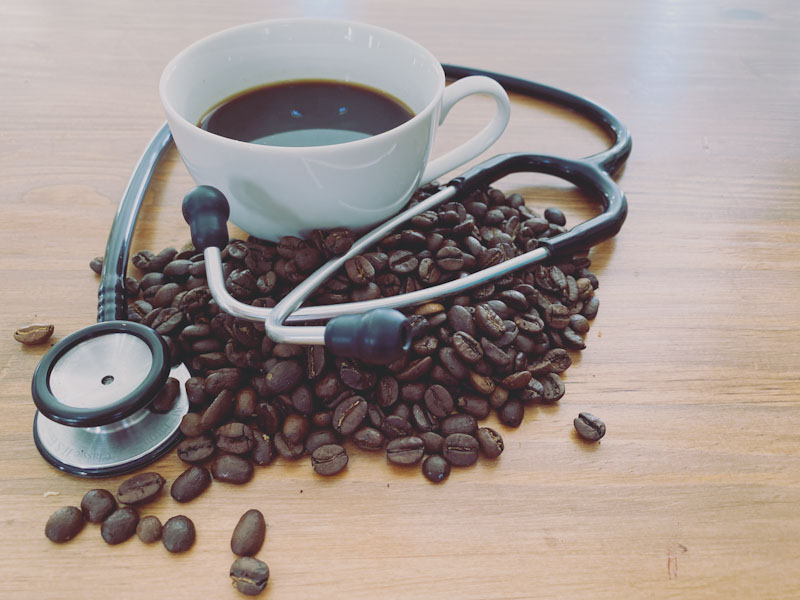IS COFFEE HEALTHY? – A DOCTOR’S REVIEW.
Coffee is one of the most popular drinks and is consumed roasted and filtered worldwide by people of all ages, ethnicities, and cultural backgrounds.
Over the last few decades, concerns were raised regarding the effects of coffee on health…is coffee healthy? Both positive and negative effects have been made public on newspapers, magazines, over the internet and social media. But not all of this information has been scientifically proven, so we are going to review some of the latest available research so that we discuss how coffee affects our minds and bodies.
As a doctor, I am used not to believe in everything that is said on the media and internet until I review serious information behind the topic. This is what I have done with the information I get from coffee: I went online and searched on several medical trustworthy electronic libraries for serious reviews and studies on the relationship between coffee consumption and health. Although there are plenty of recent academic papers from renowned medical journals, there is still a long way to go until we can say that we are 100% sure of how coffee affects our health.
Let’s start with determining what coffee is made of.
Coffee is an infusion of ground roasted coffee beans. This infusion is composed of over one thousand compounds, including the famous caffeine and other substances called chlorogenic acids, cafestol, and kahweol.
There is a large amount of studies on the biochemical composition of a cup of coffee. This composition will completely change when we transform the unroasted green bean into a roasted form, and it will also depend on the type of coffee type (Arabica versus Robusta). The degree of roasting (light vs medium, or dark roasting), the chosen preparation method along with the coffee grind setting and how we decide to brew it are also crucial stages that modify the final chemical composition of the cup that we end up drinking.

The effects on our health will also depend on our genes (family history) and on our lifestyle.
Some people may be more sensitive than others to specific compounds like caffeine. Some people will drink double or triple of the amount compared to their peers, and consequently, these effects will be different from person to person.
Caffeine is a molecule naturally present in over 60 plants including coffee, tea, and chocolate. Caffeine (also known as 1,3,7-trimethylxanthine) is a plant alkaloid with a chemical structure of C8H10N4O2. It is the most widely used central nervous system stimulant in the world, and it is commonly used in medicine due to its effects on the cardiovascular, renal, respiratory, and muscular systems. These effects include: central nervous system stimulation and wakefulness, ability to sustain intellectual activity, decreased reaction times, elevation of blood pressure, increased metabolic rate and secretion of urine (diuresis).
A standard cup of coffee should have 100 mg of caffeine (varies according to type of coffee and preparation methods), and the Food and Drug Administration (FDA) in the United States cites that for healthy adults the maximum daily dose of caffeine intake should not exceed 400 milligrams a day—that’s about four or five cups of coffee to avoid some of its side effects.
Remember that even coffee labelled as decaffeinated or decaf contains caffeine, and one 8-ounce cup may provide 2-15 milligrams.
So, is coffee bad for your health?
The answer depends on the amount of coffee that you drink and on the health state of the coffee drinker. There are several demonstrated potential health benefits from drinking coffee, and we must be aware of limiting its daily consumption to reasonable levels according to our lifestyle and our organism. These potential health benefits include prevention of type 2 diabetes (impaired sugar metabolism), prevention of Parkinson’s disease (progressive nervous system disorder that affects movement), prevention of colorectal cancer, and lower rates of liver cancer and cirrhosis among other possible benefits. It is essential to understand that the results of several studies do not allow us to conclude that these are actual protective effects in all the populations. Further studies are required to be able to state that indeed coffee consumption provides more benefits than harm.
What about those negative news on the consequences of coffee drinking for people who suffer from cardiovascular disorders such as high blood pressure, myocardial infarctions (heart attacks), and circulatory (venous and arterial) diseases?
The results of several studies of long-term coffee consumption are mixed, but generally suggest that any contribution of coffee consumption to the development of hypertension is likely to be small. Coffee drinkers with these health issues need to decrease the amount of coffee consumption to lower the effect that caffeine and other compounds may have over their existing blood pressure and cardiovascular system. It is always recommended that they consult directly with their cardiologist and receive personalized recommendations on caffeine intake limitations based on their own current situation.
It all comes down to drinking coffee within the recommended limits to enjoy good health while sipping on a freshly brewed cup of this delicious drink.
We will keep posting in the coming weeks short reviews on current medical evidence about coffee consumption and its effects on health, specifically in pregnant women, young adults and children, and several unusual situations.
Written by Dr José Francisco Fernández

References and suggested further reading;
- Farah A. Coffee: Consumption and Health Implications. Cambridge: © The Royal Society of Chemistry 2019.
- Poole R, Kennedy O, Roderick P, Fallowfield J, Hayes P, Parkes J. Coffee consumption and health: umbrella review of meta-analyses of multiple health outcomes. BMJ. 2017:j5024. doi:10.1136/bmj.j5024
- Higdon J, Frei B. Coffee and Health: A Review of Recent Human Research. Crit Rev Food Sci Nutr. 2006;46(2):101-123.
- Research I. Pharmacology of Caffeine. Ncbi.nlm.nih.gov. https://www.ncbi.nlm.nih.gov/books/NBK223808/. Published 2020. Accessed January 6, 2020.
- Spilling the Beans: How Much Caffeine is Too Much? U.S. Food and Drug Administration. https://www.fda.gov/consumers/consumer-updates/spilling-beans-how-much-caffeine-too-much. Published 2020. Accessed January 6, 2020.


Thank you Dr Fernandez for the interesting remarks. I will take into consideration your observations.
Good response in return of this query with solid arguments and describing the whole thing regarding that.
Your post is very nice.Wish to see much more like this. Thanks for sharing your information
eczema treatment malaysia
health screening malaysia